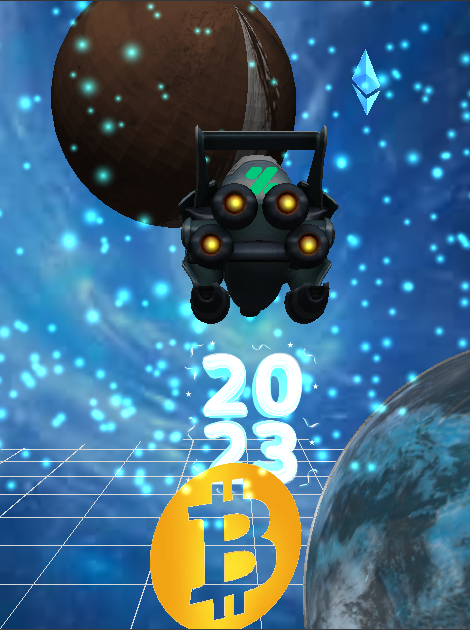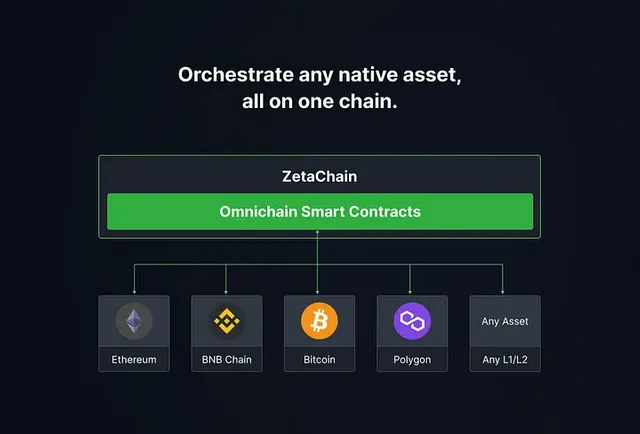ZetaChain - The Universal Translator

ZetaChain's smart contract approach to interoperability can be compared to a universal translator in science fiction. Just as a universal translator allows individuals speaking different languages to communicate with each other, ZetaChain enables different blockchain networks to communicate and transfer value between each other seamlessly. This allows for a more connected and interoperable blockchain ecosystem, just as a universal translator would enable a more connected and inclusive society in science fiction.
In such a futuristic world where multiple planets represent different blockchain networks, each with its own unique language and culture. The planets have difficulty communicating and exchanging value with each other, causing barriers and hindrances in their interplanetary commerce.
Enter ZetaChain, depicted as a spaceship, equipped with universal translator technology. It travels between the planets, bridging the communication gap and allowing for seamless value transfers between the different blockchain networks. This scenario will end with all the worlds thriving in their interplanetary trade, thanks to ZetaChain's interoperability solution.
Multichain vs Crosschain
Multichain refers to the use of multiple blockchains within a single network. Think of this as different countries within a single continent. They have their own languages and customs, but they share a common border and can trade with each other easily.
Cross-chain, on the other hand, refers to the ability of different blockchains to communicate and exchange information with each other. Think of this as different countries on different continents being able to communicate and trade with each other. This is a much more complex and challenging problem, but it is essential for the widespread adoption of blockchain technology.
The Significance of Bitcoin and Ethereum
Blockchain technology has come a long way since the introduction of Bitcoin in 2009. Bitcoin was the first decentralized digital currency, and it paved the way for the development of other blockchain applications such as Ethereum.
Ethereum is a more versatile blockchain platform that allows for the creation of smart contracts. Smart contracts are self-executing contracts with the terms of the agreement between buyer and seller being directly written into lines of code.
Bitcoin and Ethereum have played a crucial role in the development of blockchain technology. Bitcoin showed the world the potential of decentralized digital currencies, and Ethereum expanded on this by introducing the concept of smart contracts.
The Emergence of the Omnichain
ZetaChain is taking blockchain interoperability to the next level with its unique approach to the problem. ZetaChain is an omnichain, which means it can support multiple blockchains and provide interoperability between them.

The significance of the omnichain for the future of smart contracts on the blockchain cannot be overstated. With the ability to communicate and exchange information with different blockchains, smart contracts can be executed seamlessly across different platforms. This will greatly increase the efficiency and effectiveness of smart contract applications, leading to their wider adoption and use.
In conclusion, ZetaChain is taking a big step towards solving the problem of blockchain interoperability with its omnichain approach. The ability to communicate and exchange information with different blockchains will greatly increase the efficiency and effectiveness of smart contracts, leading to their wider adoption and use. The future of blockchain technology looks bright, and ZetaChain is playing a major role in shaping that future.
![]()